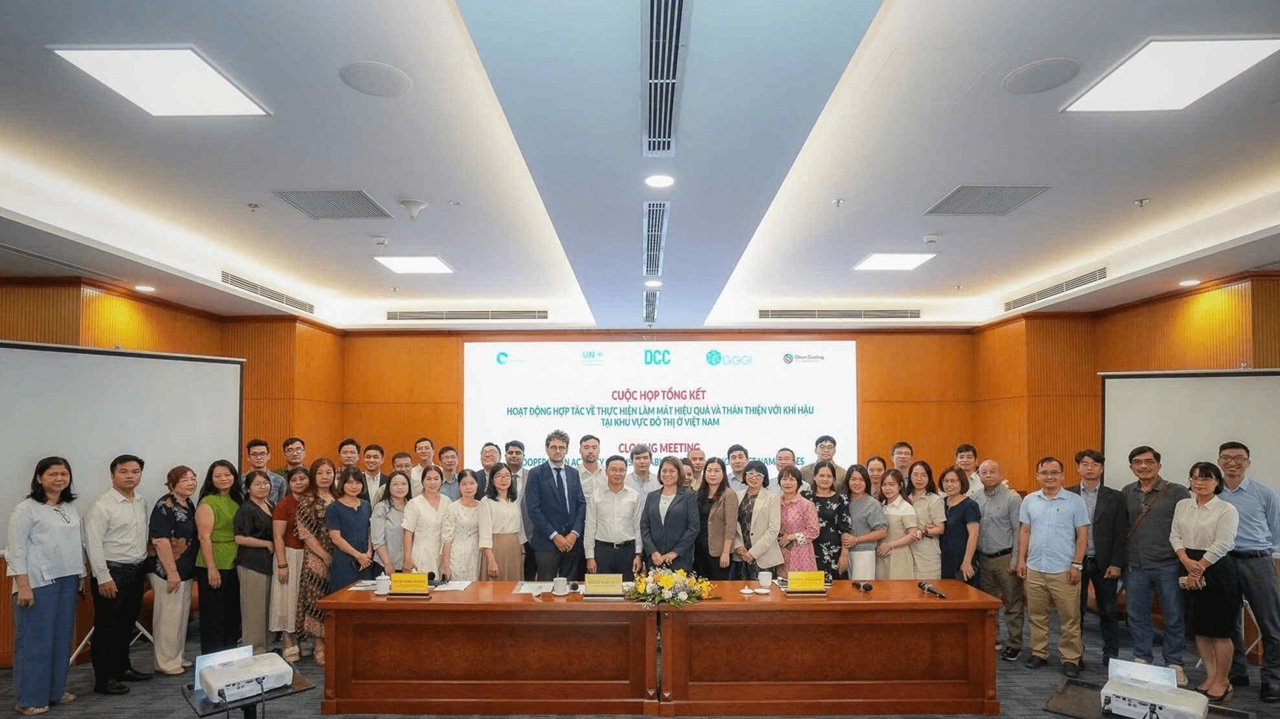Viet Nam has released a new set of Urban Cooling Action Plans (UCAPs) for pilot cities, marking the conclusion of a multi-year collaboration between the Department of Climate Change (DCC) under the Ministry of Agriculture and Environment, the United Nations Environment Programme (UNEP) Cool Coalition, and the Global Green Growth Institute (GGGI). The plans aim to address rising urban heat and support climate-resilient development.
The UCAPs were officially presented at a national event in Hanoi on 28 August 2025, attended by nearly 80 representatives from ministries, local governments, technical bodies, and financial institutions. The initiative targets the growing challenge of urban heat islands, which have raised land surface temperatures in Viet Nam's city centres by up to 5°C compared to surrounding areas.
At the event, Le Ngoc Tuan, Deputy Director of the DCC, outlined the role of urban cooling within Viet Nam’s broader climate strategy. Benjamin Hickman, Senior Programme Manager at UNEP’s Cool Coalition, highlighted the relevance of national targets under the Global Cooling Pledge. Maria Cecilia Pana, GGGI Viet Nam Deputy Country Representative, emphasised the need for risk mitigation and cross-sector collaboration to bring cooling projects to bankability.
Technical sessions featured presentations from UNEP experts Zhuolun Chen and Ngo Hoang Ngoc Dung, who shared findings from UCAP pilot projects in Can Tho and Tam Ky. Recommended strategies included passive cooling, cool roofing, and high-efficiency ventilation. City representatives from Can Tho, Quang Tri, and Da Nang discussed how UCAPs are being integrated into local planning and development.
The final session focused on linking projects to finance. UNEP Technical Advisor Trinh Quoc Dung introduced a pipeline of cooling projects ready for investment in Can Tho and Tam Ky. GGGI’s Sustainable Investment Officer, Dao Thi Mai Hoa, outlined blended finance and public–private mechanisms to support implementation.
Additional presentations included an investable concept for Can Tho’s New Urban Area and Centralised IT Park, introduced by Ngo Thi Thanh Truc of NANOEN, and a residential cooling project in Da Nang presented by Ha Quang Anh, Acting Director of the Centre for Climate Change Adaptation and Carbon Neutrality.
The UCAP for Can Tho exemplifies the new planning framework, combining data, regulatory alignment, and design solutions to enable cities to manage heat risk and mobilise investment. The initiative contributes to UNEP’s wider efforts in Southeast Asia to support sustainable urban cooling solutions.
Source
